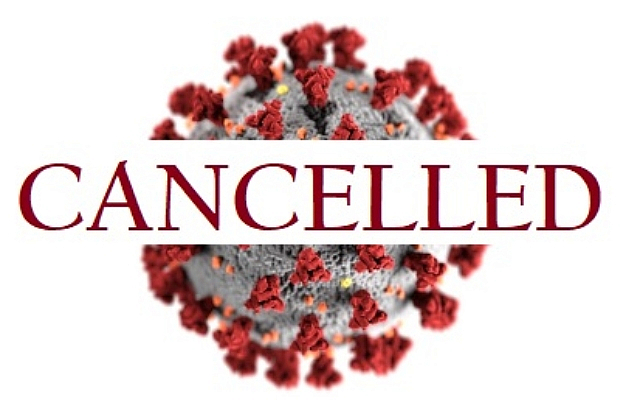Coronavirus Impacts Jewish Programs and Life
Changes are inevitable in light of international coronavirus outbreak.
Dave Schechter is a veteran journalist whose career includes writing and producing reports from Israel and elsewhere in the Middle East.
Rabbi Ruth Abusch-Magder offered a novel response to the coronavirus crisis.On March 12, the Atlanta resident posted on Twitter: “Social isolation is hard so tonight I will invite folks over to Facebook to bake challah along with me at 8:00 eastern. Using the Chernowitzer challah recipe found on @epicurious.”

Virtual baking groups aside, the coronavirus known as COVID-19 continues to change the communal and religious life of Atlanta’s Jewish community.
Communally, that now includes cancellation of such events as the Atlanta Jewish Music Festival’s “spring showcase,” which had been scheduled for April 12-15.

“This has been an incredibly difficult decision, but the safety and well-being of our community, artists, guests, and staff is of paramount importance, and we are confident that canceling is the right decision,” AJMF Executive Director Joe Alterman said in a statement issued hours before what would have been opening night. Alterman said that refunds will be provided for tickets purchased to the festival and he looked forward to AJMF’s plans to return with events planned for Aug. 20-24.
The Jewish Federation of Greater Atlanta will not hold public events through the end of April, Renee Kutner, Federation’s senior vice president of marketing and leadership development told the AJT. “Like all organizations, we are continuing to evaluate on a daily basis, and we are actively looking at how we can support our Jewish organization ecosystem and the community through these challenging times,” Kutner said.
The Marcus Jewish Community Center of Atlanta will not hold gatherings of more than 250 people in any single space, per a notice published March 11. With an eye toward spring break travel, the JCC also asks that anyone visiting a country with a level 3 travel health notice not visit the facility for a minimum 14 days when they return.
The Hunger Walk Run, an event that annually draws large numbers from the Jewish community, with thousands of participants will not be held as scheduled on March 15, but the benefit for the Atlanta Community Food Bank will go virtual, with participants encouraged to make donations online.
The Atlanta Scholars Kollel postponed its “Tribute 2020” event scheduled for March 15 at the Atlanta History Center.
The Weber School announced that it will close to students on March 16 and 17 and may transition to online learning thereafter, with students and their families to be informed by March 17 whether that will happen.
Emory University’s decision to close its dorms, end face-to-face classes and move to online learning as of March 23 means that Shabbat meals no longer will be offered at the Marcus Hillel Center. “We will, however, help you to host a Shabbat dinner in your own home,” reads an announcement on the Hillel website. “You can sign up below to host your own dinner for up to 15 people. Hillel can either provide the meal, or cover the cost of $10 per person up to 15 people.” Hillel also is offering to help students find a Shabbat dinner to attend.

Coronavirus concerns also have impacted the weekend civil rights history trips led by Billy Planer through his Etgar 36 program. More than 2,400 people, including synagogue and school groups from throughout the country, annually travel with Etgar to visit historic sites in Atlanta and Alabama. Already, 16 trips over the next six weeks have been canceled.
On the religious side, this has meant ending cherished rituals and long-standing practices and altering worship schedules. Now discouraged at congregations throughout Atlanta is everything from shaking hands, hugging and kissing to greeting people at synagogue, kissing a mezuzah or a Torah, and placing hands on each other’s shoulders while saying the prayer over bread on Shabbat.
Individually, rabbis and administrators have been forced to rethink how to engage with congregants.
Kiddush after Shabbat was canceled at Ohr HaTorah this weekend, but all other worship services remain scheduled.
Ahavath Achim Synagogue moved some classes during the week to video conference, rather than in-person, with noteworthy effect. Rabbi Laurence Rosenthal said that the amount of text covered in a Talmud class increased because of an absence of “the typical banter and schmoozing.”

Rosenthal also heads the Atlanta Rabbinical Association, whose members are sharing their individual responses to the crisis. “The hope is to encourage each of our community leaders to draft a message specific for their community. For instance, since we at Ahavath Achim have daily minyan, we are detailing procedures for that and for those who need to say kaddish, which won’t apply to a community that doesn’t hold a weekly prayer service,” he said.
At Temple Kol Emeth, the Purim play – “Little Spiel of Horrors” – will go on Friday night to an empty house, but will be available to watch online, Rabbi Steve Lebow said. Additionally, religious school on Sunday, Tuesday and Wednesday would be livestreamed, rather than in person, but a Saturday morning bar mitzvah would go one, because only 75 people were to attend.
Services would be held as scheduled at Congregation Shearith Israel though some other programs and events were cancelled, Rabbi Ari Kaiman said.

Otherwise, the guidance at Shearith Israel was similar to that at other congregations. People feeling ill or who are part of at-risk populations have been encouraged to stay home; social distancing and reduced physical interaction were recommended; hand washing and the use of hand sanitizers was being stressed, and building staffs were sanitizing the facility to the extent possible.
Congregation Bet Haverim will hold services in-person this Shabbat, but they also will be available on livestream with the possibility of becoming livestream for the foreseeable future thereafter. An advisory group is being formed at Bet Haverim to consider what types of gatherings should go forward in-person and which should not.




comments